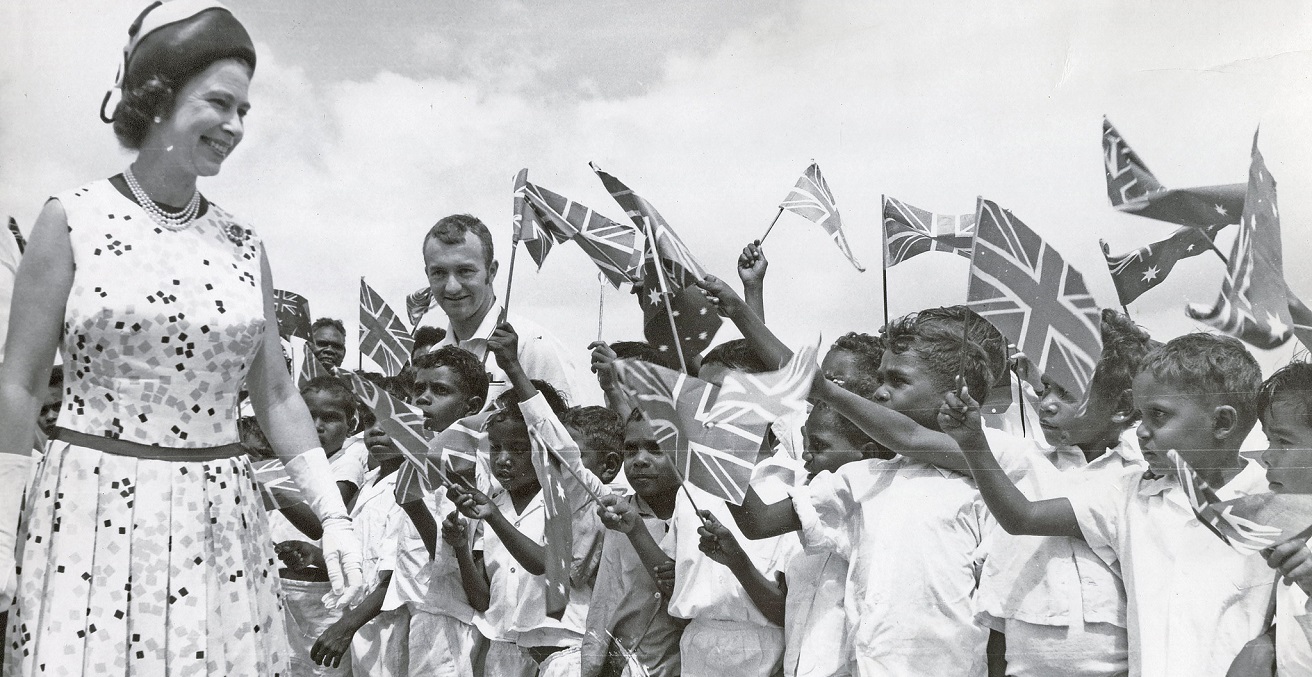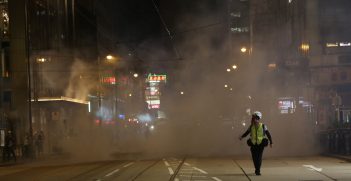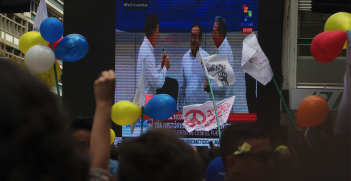Death of a Monarch Highlights the Ongoing Impacts of Empire and Colonisation

The death of Queen Elizabeth II has sparked a global conversation about her legacy. The opinions and experiences of people of colour are being drowned out by their white counterparts.
“The Queen is dead. The King is alive.” These were the words Edward VII used following his ascension to the British throne in 1901. Like Edward, Charles III comes to the throne following a lifelong wait, and his reign will no doubt be short in comparison to his predecessor. But the two kings will be marked by their differences in handling what is now the remnants of a global empire.
With the announcement of the death of Elizabeth II, social media has quickly spun into two camps. One side is mourning someone they viewed as integral to their identity. On the other side, millions around the world, particularly those in the Global South, are not afraid to hold back their thoughts on colonialism in the wake of this moment in history. The former camp is shocked and angered by the perceived irreverence shown by the latter, but the horror once wrought around the world in the name of the British monarchy still lives on.
We would do well to remember that when Elizabeth herself ascended the throne in 1952, she was on a royal tour of Kenya, standing in for her father, George VI. The tour itself was designed to quash further independence movements on the continent. Every African colony of the UK to gain independence did so during Elizabeth’s reign. Ghana, the first to gain its independence, did so a full four years after her ascension. As more African colonies became independent, many were persuaded to maintain relations through the Commonwealth, which some commentators and even British officials have suggested is a soft, neo-empire.
But even for independent nations, those that have attempted to fully gain control and become republics or leave the Commonwealth have been subject to their own discouragement-designed royal tours. Just this March, William and Catherine, Duke and Duchess of Cornwall and Cambridge, were lambasted as “heavily misjudging” the public mood on their tour of Belize, Jamaica, and the Bahamas. Last November, the King was present to witness Barbados transition to a republic, for which there was domestic outcry. The general secretary of the Caribbean Movement for Peace and Integration was noted to have stated, “If you are breaking with the monarchy, then you cannot invite them to be part of that process.” Even following the narrow defeat of the Scottish Referendum in 2014, Elizabeth was said to have “purred down the line” when then-Prime Minister David Cameron had called to inform her of the results.
If reports from many former colonies are any indication, millions of people worldwide have a fractious relationship with the institution of the British monarchy, if not with Elizabeth herself. But there is a hegemony of acceptable power within these ranks. It is apparent that people of colour on social media who are seen to be “making light” of Elizabeth’s death are being held to far greater moral outrage than white people with the same opinions. The Irish portion of Twitter has even made jokes at its own expense, with “IT’S HAPPENING” trending for a few hours following the news of Elizabeth’s final health decline on 8 September. Australian Twitter has also been subject to a similar spectacle – indeed, at the time of writing, #IrishTwitter was the number five trending topic in Australia.
However as a settler-state, Australia’s reaction has itself been split. With Elizabeth’s death, Parliament has now been suspended for 15 days. The governor-general and prime minister will both travel to London in the coming days to meet with the King and attend the funeral. Upon returning, there will most likely be a day of mourning. For many (white) Australians, there will be no question to these actions – she was “grandmother to us all.” For many Indigenous people, however, this has been an occasion to voice their anger at their systemic treatment in the monarchy’s name. Some see this as irreverent, but one commentator rebutted, “we’re not being insensitive, we’re decolonising your grief.” There have also circulated images of the Aboriginal Flag being flown at half-mast. Indeed, there is an upcoming referendum to introduce an Indigenous Voice to Parliament. To then turn around and tell Indigenous people they do not possess the right to discuss this event in the context of their own experiences flies in the face of that referendum’s very meaning. To those who have said that now is not the time, when is a good time? Because Indigenous voices are not heard even when it is “the time.”
The shockwave the death of a powerful and famous woman in her mid-90s is profound to be sure. But to attempt to silence those who have suffered from her action, or inaction, is wrong. Out of all the nations in the world, just 22 have not been invaded by Britain. This article is written in English for that very reason. The Queen’s passing will undoubtedly give republicans around the Commonwealth more fire for their cause, and it will be interesting to see what conversations will occur with Charles on the throne.
Sarah Jenkins is studying a Bachelor of Politics and International Relations at the University of Canberra. She is a former intern of the Australian Institute of International Affairs National Office.
This article is published under a Creative Commons Licence and may be republished with attribution. It was originally published on September 9 but was lightly edited and updated on September 19 to include links to subsequent reporting on similar themes.





